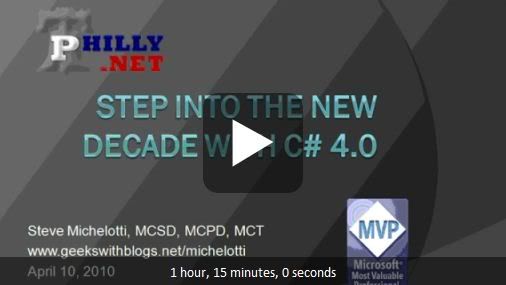XQuery The XML Query Language | Date: 19 January 2011, 08:18
|
XQuery is a deep and powerful new language, yet it's easy to pick up and start using productively right away. Accordingly, this book is designed as both an introduction for new XQuery users and a reference for experienced ones. XQuery is the most complex XML standard to date, comprising well over a thousand pages of very dense and abstract implementation details. If you are creating an XQuery implementation yourself, you need to read them. Everyone else should read this book instead; it will save you a lot of time and confusion. This is the book I wanted when I first got started with XQuery, and am thrilled to have now. I had the good fortune to become involved with the XQuery standard more than two years ago, before it even had the name. I implemented the first Microsoft XQuery prototype available at MSDN (but not later ones), prototypes of XQuery over SQL Server, and my own XQuery implementation for this book. I've also given several dozen presentations on XQuery, and wrote a chapter about it for a previous book. Currently, I'm responsible for the cross-language XML query representation and optimizer at Microsoft. However, I've been primarily a user of XQuery rather than an implementer of it. All of this adds up to a unique perspective, which I've brought to bear in this book. I hope my experience with XQuery will benefit you greatly, whether you're using XQuery for the first time or the thousandth. Who Should Read This Book? This is a practical book, intended for every developer using XQuery regardless of your programming environment, whether you're a beginner or expert, or whether you're using XML for documents, Web services, databases, or other purposes. You must be familiar already with the basics of XML 1.0. You need to understand concepts such as namespaces and qualified names, the different XML node kinds (element, attribute, and so on), and the difference between tags and elements. This book doesn't review XML or APIs for using it (like SAX and DOM). However, you don't need to know XML Schema, XPath, XSLT, SQL, or any of the other technologies that are mentioned throughout this book. You can safely skip sections that compare XQuery to technologies you don't already know. Organization This book is organized into four major sections. Part I introduces XQuery. Chapter 1 briefly touches on the reasons to use XQuery and then gives an overview of the entire language, pointing to later chapters for additional details. Chapters 2 to 4 cover the background material required throughout the rest of the book, starting with the XQuery Data Model and type system. You may want to skim over parts of these chapters and refer back to them later. Part II drills into the details of XQuery expressions, from arithmetic to XML construction and everything in between. Part III goes beyond the standards, exploring XQuery expressions whose behavior may surprise you and how to use XQuery to accomplish certain common tasks. Chapter 14 looks at features that might appear in future versions of XQuery. Finally, Part IV is a comprehensive reference to the entire XQuery language, including appendices on the type system (Appendix A), core expressions (Appendix B), built-in functions (Appendix C), regular expressions (Appendix D), and grammar (Appendix E). These appendices are heavily cross-referenced among one another and the other chapters in the book for your convenience. Resources This book isn't tied to any particular implementation of XQuery, and I endeavored to test the examples on several different ones. XML/Query, the public Web site of the W3C XML Query Working Group, you'll find a list of many freely and commercially available XQuery implementations. At this book's Web site, [a rel="nofollow" target="_blank" href="http://www.qbrundage.com/xquery">http://www.qbrundage.com/xquery, you will find updates and errata to the book as they become available. Additional resources can be found in the Bibliography at the end of this book.
|
DISCLAIMER:
This site does not store XQuery The XML Query Language on its server. We only index and link to XQuery The XML Query Language provided by other sites. Please contact the content providers to delete XQuery The XML Query Language if any and email us, we'll remove relevant links or contents immediately.
|
 |
|
 Comments (0)
All
Comments (0)
All










